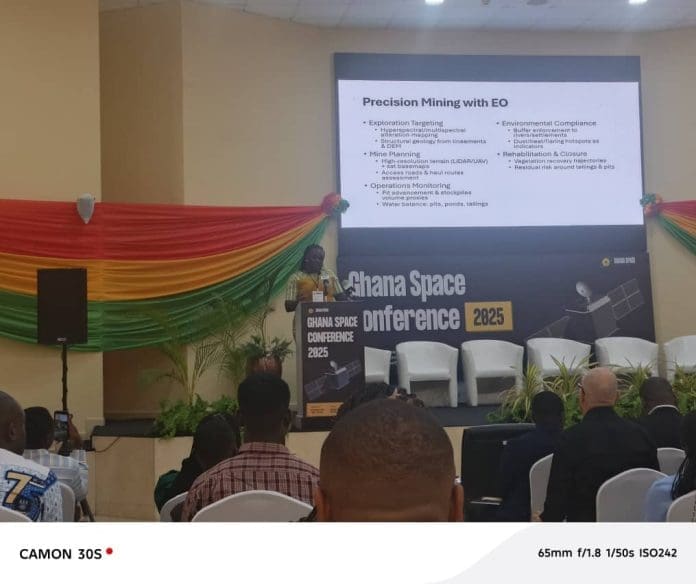Ghana is positioning itself to tap into the fast-growing global space economy, which is currently valued at over US$600 billion and projected to hit US$1.3 trillion within the next decade.
Experts say this could become a major driver of national development if the country invests in the production of its own space technology tools.
Speaking at the maiden Ghana Space Conference at the University of Ghana in Accra, the Chief Executive Officer of the Environmental Protection Agency (EPA), Prof. Nana Ama Klutse, called for deliberate government investment in space science and technology to boost economic growth and innovation.
She explained that although Ghana and many of its institutions are already applying aspects of space technology — including satellite monitoring, environmental tracking, and agricultural mapping — the country remains a user rather than a producer of the tools that drive the industry.
“We need to move beyond consumption to production,” she said. “When we produce our own space technology tools, we gain economic power, create jobs, and retain value within our economy.”
Prof. Klutse noted that Parliament’s recent approval of the Ghana Space Policy provides a clear framework to guide national efforts in developing a home-grown space industry.
She emphasized that the cost of investing in space technology should be seen as a long-term national investment, not an expense, adding that local production would reduce dependence on imported systems and generate high-tech employment for young Ghanaians.
“The technology is expensive, yes, but the returns are far greater,” she said. “Once we build local capacity, we will not only use the technology but export it to other countries.”
The Director of the Ghana Space Science and Technology Institute (GSSTI), Dr. Joseph Bremang Tandoh, shared similar sentiments, describing the space sector as a key pillar for sustainable economic development.
He explained that, under both the United Nations Convention and the African Space Policy, nations are encouraged to leverage space technology to drive industrial growth, agriculture, security, and environmental protection.
“According to the African Space Policy, 90 percent of Africa’s problems can be solved using space technology,” he noted. “With the Ghana Space Policy now approved and the National Space Agency established, we have the blueprint — what remains is resource commitment.”
Dr. Tandoh added that Africa’s space economy, currently valued at US$22 billion, could multiply significantly within the next decade, and Ghana stands to benefit if it becomes a producer rather than a passive observer in the field.
“The tools we use are mostly made abroad. If we develop our own, we will create jobs, grow industries, and reduce capital flight,” he stated.
The experts agreed that with the right investment and collaboration between government, academia, and the private sector, Ghana could emerge as a regional hub for space innovation — unlocking new opportunities in mining, agriculture, climate monitoring, and data analytics.
Source: newsghana.com.gh











